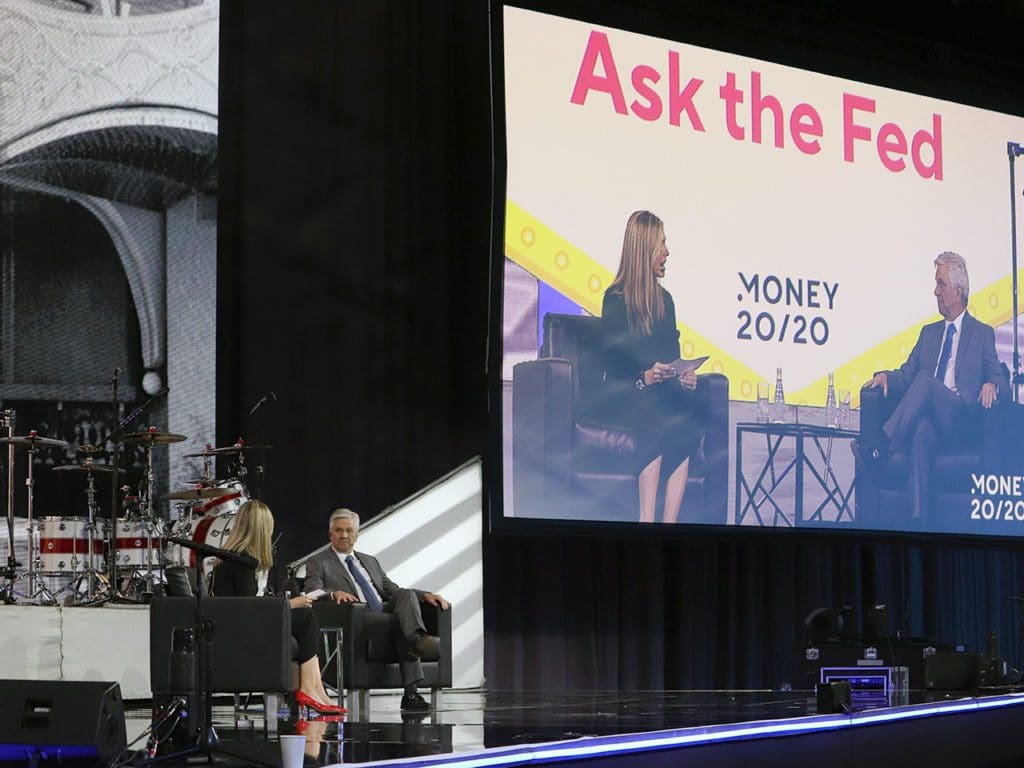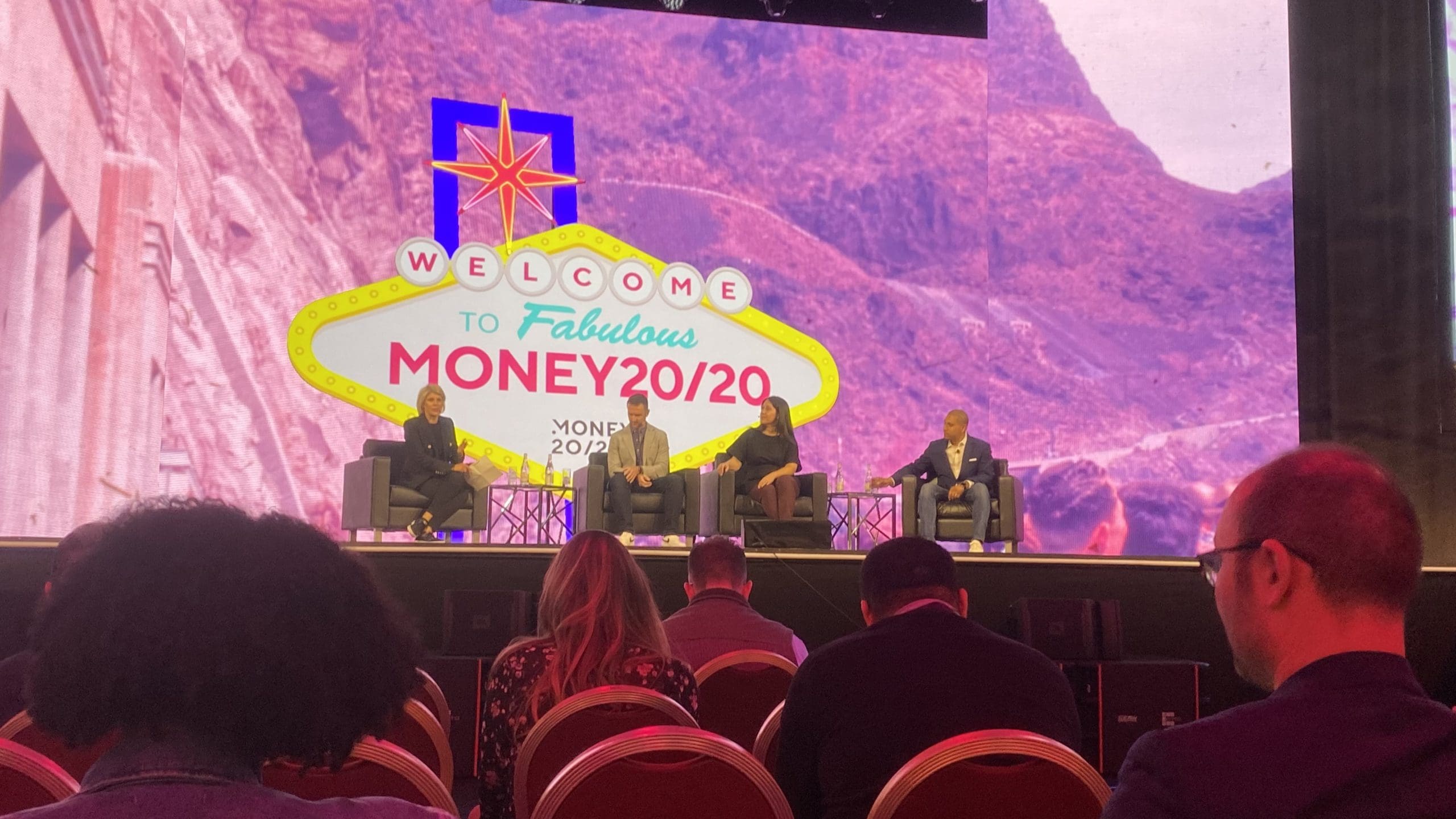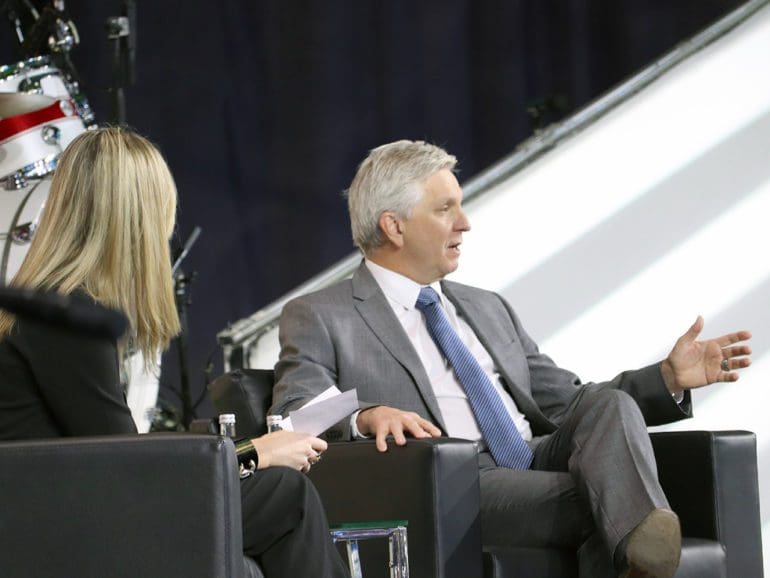In about six to eight months, FedNow will launch a country-wide interstate highway for payments that will change the financial landscape, Fed Reserve Governor Christopher Waller said on Oct. 25.
He said anyone in payments or fintech needs to get ready for 24/7, 365 settlement; the government will provide the infrastructure, and the private industry needs to build on top and fast.
“The FedNow structure will be online up running sometime between May and June of 2023; once we get that up and running, we should have full reach across the country in real-time payments through either RTP or the Fed House service,” Waller said.
“The critical thing is if you’re a bank, or you’re a fintech working with a bank, and you to want access, you need to talk to your payments processor, or directly to the Fed, and get hooked up and get going.”

Get the RTP rear in gear
“In the last decade or so, there has been a revolution in the payments industry,” Weller said. “If you told any high school student the hottest place to work in tech would be payments, they would have looked at you cross-eyed,” he said.
“There was an initiative by the Fed five to seven years ago to improve the payment rails, particularly real-time payments 24/7, 365.”
The private industry built a standard through banks called RTP, and he said it worked but was not accessible nationwide and was not entirely real-time.
The decision was made to build an always-open payments network that could send money anywhere, Waller said.
“The government many times in history has said, ‘Look, we need to provide electricity to rural areas, internet to rural areas, inaccessible areas,’ I think of FedNow in the same way,” Waller said. “It’s going to reach part of the financial system that the large RTD system isn’t going to reach, but provide the same level of customer service. Fintechs here through working with banks, you’ll be able to access that and provide real-time payments across the country.”
How to get onto the payments freeway
Waller likened FedNow to a great public works project, an interstate highway offered on a utility basis. He said to hook into the project, you have to be associated directly with a bank with a Fed account.
“We’re kind of the Interstate Highway, we build a highway, and your job is to build stuff on the entrance ramps that make the experience better for everybody gets on the highway,” Waller said. “To hook into the Fed, you must be associated with a bank to get through the payment rails.”
He compared FedNow to Zelle and other real-time settlement systems and that there is a difference between real-time settlement and real-time payment. Zelle can post your paycheck the same day in your account and Venmo and show your funds the same day, but settlement happens a couple of days later. Waller said according to congress, the Fed cannot give a “master account to anybody but a bank.”
“If you are unhappy about that, go talk to congress or policymakers; you can change the rules that way,” Waller said. “That means until the legislation changes, fintechs and other payments providers will have to work with the banks that have access to the Fed.”

Pass the gravy
Like a big dysfunctional family forced to get together every thanksgiving, the fintech bank partnership model will keep enabling tech companies to send real-time payments through the Fed.
Waller said the system could not work without each part, the Fed providing security, banks providing strength and liquidity, and fintech providing tech know-how and onramps.
Waller then broke into Q&A with Money 20/20 panel moderator Ginny Chappel, EVP of Product Marketing at Moov Financial, about stablecoins and CBDCs.
He said stablecoins would be fine if issued by banks through deposits at the Federal Reserve.
He said if the Fed ever launched CBDC and fed deposit accounts, it would look like a second debit account in each citizen’s bank account and would say ‘deposits form the Fed’ up top, but otherwise not dramatically change.
Wise, Stripe, and Brex payments post up
A second panel, the day before, featured payments leaders and their thoughts about the industry’s future.
Naturally, FedNow came up. Nick Catino, Head of Policy at Wise, said that the U.S. always seems to lag behind other countries infrastructure. FedNow is late to the party compared to the UK, EU, Brazil, and China.
“My perception, including during my time on the hill, was that policymakers in the U.S. often feel like there’s already so much industry progress that they don’t necessarily need to facilitate innovation and competition.”
He said the industry is asking, “as a payments company, how can we gain access to the fed payments system.”

The options are endless, and he said arguments might break out in the room between fintech lawyers, between amending the Fed Reserve act to Congress-granted charters.
Catino said his favorite option is the Fed changing the rules behind master accounts to be more lenient and include payment companies while regulators and congress figure out the rest.
“That needs to be more of a policy discussion in Washington that has changed over the last half-decade,” Catino said. “This was not being discussed half a decade ago when the UK and others started doing this for the first time.”
‘A huge undertaking’
Moderator Penny Lee, CEO of FTA, asked Leila Perkins, Head of North American Regulatory at Stripe, if the access to the FedNow tools should be broader than banks only.
“FedNow is an interbank real-time settlement service that the Fed is developing to facilitate instant payments in the United States 24 hours a day, seven days a week, 365 days a year. This is a huge undertaking. When we look at FedNow and prepare for the launch, I think one of the core things we need to focus on is bank adoption,” Perkins said.
She said she wants to see more small banks, not in RTP, added to the FedNow list and hopes the Fed master account program will extend past banks.
Conway Ekpo, director and Assoc. General Counsel at Brex said that instead of eating costs to make things smoother for their customers by sending wire transfers, they would get off the hook when FedNow launches.
“We’re able to send wires for free, and that’s an aspect that would benefit from Fed now being in place,” Ekpo said.
He asked what products the FedNow is trying to solve and said it’s still up to fintechs to build the best products.
“Real-time settlement is not at the heart of every settlement for every customer,” he said. “The consumer may care about settlement in real-time, but often they just want to know that they have money in their account that gets sent and settlement is the other person’s problem.”


